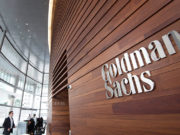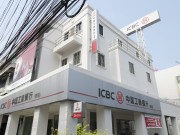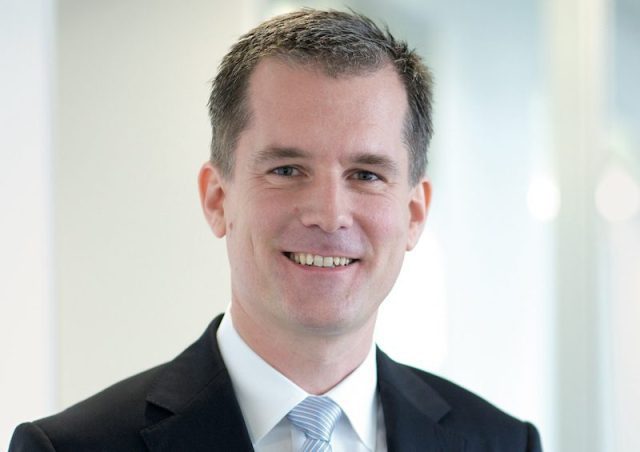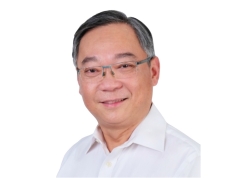Schroders Capital Chief Investment Officer Nils Rode: Navigating the Downturn on Private Assets
May 2023 – This is an expert commentary on opportunities & risks on private assets – Navigating the Downturn on Private Assets by Dr. Nils Rode who is the Chief Investment Officer at Schroders Capital.
 Schroders Capital is the private markets investment division of Schroders Group. With over $88 billion AUM and over 680 employees we cover a broad range of asset classes out of 19 offices globally. Founded in 1804, Schroders is one of Europe’s largest independent investment management firms by assets under management. As at 30 June 2022, assets under management were £773.4 billion (€898.4 billion; US$939.2 billion). Schroders has continued to deliver strong financial results. It has a market capitalisation of circa £7.7 billion and employs over 5,800 people across 38 locations. Schroders offers innovative products and solutions across their five business areas of solutions; institutional; mutual funds; private assets & alternatives; and wealth management. Clients include insurance companies, pension schemes, sovereign wealth funds, endowments and foundations. They also manage assets for end clients as part of their relationships with distributors, financial advisers and online platforms.
Schroders Capital is the private markets investment division of Schroders Group. With over $88 billion AUM and over 680 employees we cover a broad range of asset classes out of 19 offices globally. Founded in 1804, Schroders is one of Europe’s largest independent investment management firms by assets under management. As at 30 June 2022, assets under management were £773.4 billion (€898.4 billion; US$939.2 billion). Schroders has continued to deliver strong financial results. It has a market capitalisation of circa £7.7 billion and employs over 5,800 people across 38 locations. Schroders offers innovative products and solutions across their five business areas of solutions; institutional; mutual funds; private assets & alternatives; and wealth management. Clients include insurance companies, pension schemes, sovereign wealth funds, endowments and foundations. They also manage assets for end clients as part of their relationships with distributors, financial advisers and online platforms.
Navigating the Downturn on Private Assets

Dr. Nils Rode: Since October 2022, our view has been that there is a high probability of a recession occurring in 2023. That remains the case. Recent events, such as the failures of Silicon Valley Bank and Credit Suisse, have reinforced our outlook. We also note that after the significant bankruptcies during the recessions of 2001 and 2008, it took an additional year for equity markets to hit bottom. Therefore, we believe that the recent banking failures may not necessarily indicate the end of the current economic downturn.
We believe that recessions can create attractive investment opportunities for private assets. Historical data suggests that recession vintage years have often produced favourable results for private assets.
In the current economic climate, we recommend that investors direct their new investments towards assets that align with long-term trends and exhibit low correlation with traditional investment strategies. Additionally, investors could consider cyclical or contrarian investment opportunities for tactical adjustments to their asset allocation, while avoiding investments that may be exposed to cyclical headwinds.
” after the significant bankruptcies during the recessions of 2001 and 2008, it took an additional year for equity markets to hit bottom “
1) Seek tailwind from long-term trends
Dr. Nils Rode: We see promising investment opportunities in areas such as sustainability- and impact-aligned investments, renewable energy, generative artificial intelligence, and investments in India. We expect these long-term trends to continue in the coming years, presenting investors with potential for attractive returns.
” promising investment opportunities in areas such as sustainability- and impact-aligned investments, renewable energy, generative artificial intelligence, and investments in India “
2) Focus on less correlated investments
Dr. Nils Rode: We see attractive opportunities in small- and mid-buyouts in certain industry sectors – notably healthcare – seed and early-stage venture capital investments, direct lending, and microfinance. These investments offer the potential for attractive returns while also contributing to portfolio diversification.
” attractive opportunities in small- and mid-buyouts in certain industry sectors – notably healthcare – seed and early-stage venture capital investments, direct lending, and microfinance “
3) Consider investment strategies with cyclical or contrarian opportunities
Dr. Nils Rode: Given the recent tightening of credit conditions, we see cyclical opportunities in private debt and alternative credit across various strategies. Additionally, we view real estate secondaries as a contrarian opportunity. These potential investment opportunities can inform tactical adjustments to asset allocations.
” cyclical opportunities in private debt and alternative credit across various strategies. Additionally, we view real estate secondaries as a contrarian opportunity “
4) Avoid investment strategies with cyclical headwinds

Dr. Nils Rode: We caution against strategies where we see a heightened risk of valuation corrections. This includes late-stage venture and growth capital investments, the larger end of buyout markets, and commercial real estate investments. By avoiding these strategies, investors can mitigate risks and focus on more promising opportunities. Our assessment of opportunities within the private asset class has remained largely unchanged over recent quarters. We provide a more detailed examination of these opportunities below.
” caution against strategies where we see a heightened risk of valuation corrections: late-stage venture and growth capital investments, the larger end of buyout markets, and commercial real estate investments “
5) Private equity
Dr. Nils Rode: We believe that being highly selective in private equity investments is a critical success factor. Specifically, we recommend focusing on investments that align with long-term trends and offer the potential to capture a complexity premium by deploying unique skills to drive both organic and inorganic growth of portfolio companies.
In the coming quarters, we anticipate that small- and mid-sized buyouts will outperform large buyouts, driven in part by a more favourable dry powder environment for smaller transactions. Similarly, we expect seed and early-stage disruptive investments to be more resilient than later-stage or growth investments, owing to the same dynamics.
The failure of Silicon Valley Bank may result in a reduction in the availability of venture lending and subscription lines of credit. This could accelerate the ongoing valuation correction for later-stage and growth investments.
By sector, we are particularly drawn to opportunities focusing on healthcare. Regionally, we continue to see North America, Western Europe, China and especially India as attractive. GP (General Partner)-led transactions are likely to rise further in prominence. GP-leds allow favoured portfolio companies to be retained and developed further by the same management team. With IPO markets closed, we anticipate a reduction in M&A exits, so GP-leds should increase.
” small- and mid-sized buyouts will outperform large buyouts “
6) Private debt and alternative credit

Dr. Nils Rode: We continue to see favourable lending conditions for creditors, offering attractive risk-adjusted yields. Recent market volatility has led traditional banks to pull back from lending, creating more opportunities and bargaining power for alternative lenders. In response, loan terms now feature stronger covenants and more conservative deal terms that favour lenders. Additionally, spread widening and higher base rates over the last 12 months have resulted in higher yields.
Of the different private debt strategies available, we especially like investments that offer variable interest rates and tangible asset backing. Infrastructure and real estate debt, in particular, provide explicit asset backing and many opportunities offer contractual or ‘passthrough’ links to inflation. Additionally, both asset classes have historically offered robust downside protection.
” we especially like investments that offer variable interest rates and tangible asset backing. Infrastructure and real estate debt, in particular, provide explicit asset backing “
Floating-rate securities are also prevalent in the mortgage-backed, asset-backed, and collateralised loan obligation (CLO) sectors. These securities are backed by housing, real estate, and consumer debt and can provide diversification within a floating rate allocation while also exposing investors to different types of corporate risk via leveraged loans or direct lending.
The leveraged loan market has significantly repriced due to a changing economic landscape with higher rates and reduced credit availability. Consequently, we expect new deals and refinancing activity to be structured more conservatively.
Insurance linked securities (ILS) can offer valuable diversification in any fixed income portfolio due to their lack of correlation with traditional assets. Additionally, yields for ILS have recently reached historic levels, primarily due to natural catastrophes and insurance market dynamics, resulting in a significant increase in risk premiums. We anticipate this trend will continue.
Another strategy that provides diversification and lowly correlated returns is microfinance. Floating-rate portfolios in microfinance can deliver stable returns, making it an attractive option for investors seeking alternative sources of income.
7) Infrastructure
Dr. Nils Rode: The ongoing war in Ukraine has heightened concerns about energy security and spurred efforts to reduce reliance on fossil fuels. Developing the necessary infrastructure is essential for a successful transition to renewable energy, with wind and solar investments playing a vital role. Renewables offer a particularly attractive option due to their strong link to inflation and secure income characteristics, which can help investors navigate the challenges of high inflation and tightening interest rates.
” Renewables offer a particularly attractive option due to their strong link to inflation and secure income characteristics “
Globally, positive policy stimulus such as the Inflation Reduction Act in the US and the Green Deal Industrial Plan in Europe, combined with reduced funding availability from traditional sources, has led to increasing returns for renewables. This trend is evident in the US, the UK, and many parts of Europe.
We also see attractive opportunities in other infrastructure areas related to digitalisation and other essential infrastructure. While many of the most attractive infrastructure investment opportunities can be found in Europe, we also see opportunities to make sustainable infrastructure investments in emerging markets on a highly selective basis.
8) Real estate
Dr. Nils Rode: In real estate markets, the higher interest rate environment has slowed transaction activity significantly. We have seen double digit valuation declines since the third quarter of 2022. We anticipate further pricing adjustments through 2023, especially in fringe markets and for secondary, non-sustainable, assets.
The repricing observed has already created attractively rebased investments in places and we anticipate a broader buying opportunity emerging through 2023. This will be amplified by distressed selling around refinancing and other liquidity needs, creating opportunities for well capitalised buyers.
This is set against occupational markets remaining well supported by tight supply conditions, that will persist given elevated construction and finance costs, thereby providing a conducive base for further inflation adjustment and rental growth once economies recover.
” The transition to a higher interest rate regime will make financial engineering less feasible going forward “
The transition to a higher interest rate regime will make financial engineering less feasible going forward. Performance will instead be centred on the delivery of efficient operational management across sectors, providing contractual or indirect inflation protection. This encompasses operational sectors driven by structural versus cyclical trends and where long-term success of the tenants’ business is aligned with property owners.
Sustainability and impact considerations should be prioritised to ensure that portfolios are future proofed against rapidly shifting occupier preferences and evolving regulatory requirements, with additional expenditures in relation to these more likely to be reflected in valuations.
Shortages of well-located sustainable office space meeting future demand versus expected obsolescence of non-sustainable properties will drive significant bifurcation in performance between ‘winners and losers’. We currently see absolute and relative value in convenience retail formats; urban industrial and logistics assets; mid-market multi-family housing although being cognisant of pending changes in rent controls to protect consumers and more operationally intensive sectors such as budget and luxury hotel formats, and self-storage.
Conclusion

Dr. Nils Rode: Schroders Capital views recessions as an opportunity for private asset investments and maintain a steady investment pace. During market conditions where the likelihood of a recession is high, it is especially advisable to focus on private asset investments that align with long-term trends and have low correlation with other private asset strategies.
We urge caution regarding strategies that face cyclical headwinds. We believe that the long-tail of the private assets market, comprising more small- to mid-sized transactions that constitute the majority of transaction volume, presents particularly promising investment opportunities.
This is an expert commentary on Private Assets by Dr. Nils Rode who is the Chief Investment Officer at Schroders Capital.
Important Information
This document is intended to be for information purposes only and it is not intended as promotional material in any respect nor is it to be construed as any solicitation and offering to buy or sell any investment products. The views and opinions contained herein are those of the author(s), and do not necessarily represent views expressed or reflected in other Schroders communications, strategies or funds. The material is not intended to provide, and should not be relied on for investment advice or recommendation. Any security(ies) mentioned above is for illustrative purpose only, not a recommendation to invest or divest. Opinions stated are valid as of the date of this document and are subject to change without notice. Information herein and information from third party are believed to be reliable, but Schroder Investment Management (Hong Kong) Limited does not warrant its completeness or accuracy.
Investment involves risks. Past performance and any forecasts are not necessarily a guide to future or likely performance. You should remember that the value of investments can go down as well as up and is not guaranteed. You may not get back the full amount invested. Derivatives carry a high degree of risk. Exchange rate changes may cause the value of the overseas investments to rise or fall. If investment returns are not denominated in HKD/USD, US/HK dollar-based investors are exposed to exchange rate fluctuations. Please refer to the relevant offering document including the risk factors for further details.
This material has not been reviewed by the SFC. Issued by Schroder Investment Management (Hong Kong) Limited. Schroder Investment Management (Hong Kong) Limited Level 33, Two Pacific Place, 88 Queensway, Hong Kong www.schroders.com.hk
About Schroders
Founded in 1804, Schroders is one of Europe’s largest independent investment management firms by assets under management. As at 30 June 2022, assets under management were £773.4 billion (€898.4 billion; US$939.2 billion). Schroders has continued to deliver strong financial results. It has a market capitalisation of circa £7.7 billion and employs over 5,800 people across 38 locations. Schroders offers innovative products and solutions across their five business areas of solutions; institutional; mutual funds; private assets & alternatives; and wealth management. Clients include insurance companies, pension schemes, sovereign wealth funds, endowments and foundations. They also manage assets for end clients as part of their relationships with distributors, financial advisers and online platforms.. Visit: www.schroders.com.hk
Sign Up / Register
Caproasia Users
- Manage $20 million to $3 billion of assets
- Invest $3 million to $300 million
- Advise institutions, billionaires, UHNWs & HNWs
Caproasia Platforms | 11,000 Investors & Advisors
- Caproasia.com
- Caproasia Access
- Caproasia Events
- The Financial Centre | Find Services
- Membership
- Family Office Circle
- Professional Investor Circle
- Investor Relations Network
Monthly Roundtable & Networking
Family Office Programs
The 2025 Investment Day
- March - Hong Kong
- March - Singapore
- July - Hong Kong
- July - Singapore
- Sept- Hong Kong
- Sept - Singapore
- Oct- Hong Kong
- Nov - Singapore
- Visit: The Investment Day | Register: Click here
Caproasia Summits
- The Institutional Investor Summit
- The Investment / Alternatives Summit
- The Private Wealth Summit
- The Family Office Summit
- The CEO & Entrepreneur Summit
- The Capital Markets Summit
- The ESG / Sustainable Investment Summit



































